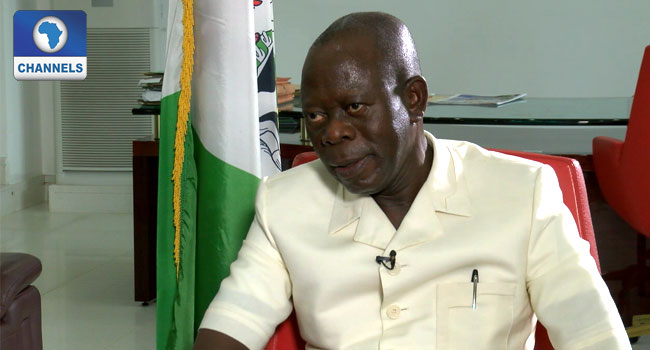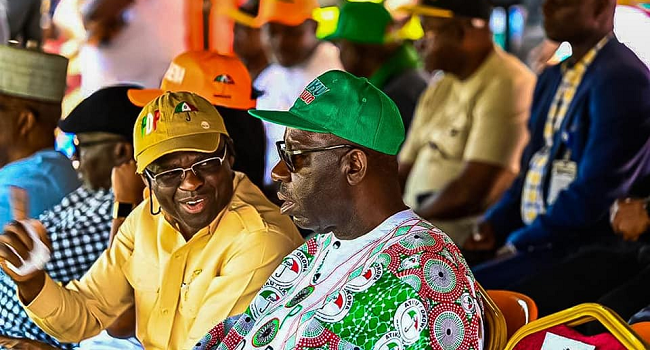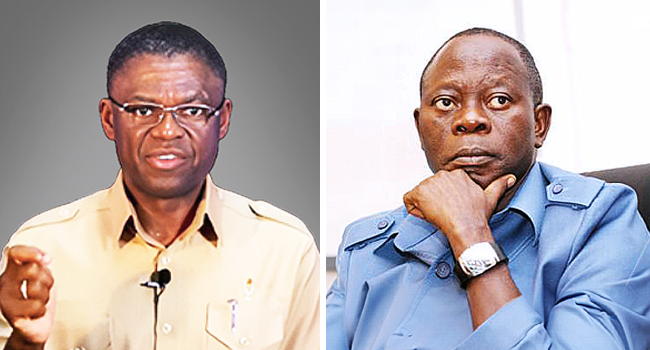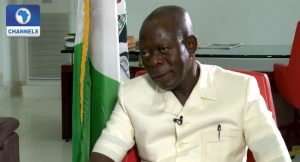
This is coming days after reports of plan to sell some of the nation’s assets, especially in the oil and gas sector to ease the impact of the current economic crisis were made.
Governor Oshiomhole told Channels Television in an exclusive interview that he believed the nation’s assets should not be traded in a hurry in the name of raising funds for the country.
He raised concerns that the use of the phrase, ‘sale of assets’ was offensive.
“The word itself, selling assets is offensive. But I don’t know the difference between the so called asset selling and privatisation of state’s assets or privatisation of certain sectors where government is clearly inefficient and where it is believed that private sector’s involvement will be more efficient.
“But to talk of auctioning national assets, I don’t have all the details. I am not able to readily understand that but my own position is that we must not panic as a nation and resort to quick fix which over time we might regret.
“As you can see now, we wanted privatisation of power and the government went ahead to privatise the power in a hurried manner and end up transferring the DISCOS to incompetent hands and Nigeria is worse off today in terms of power stability relative to what it was when it was under the government’s control,” the Governor said.
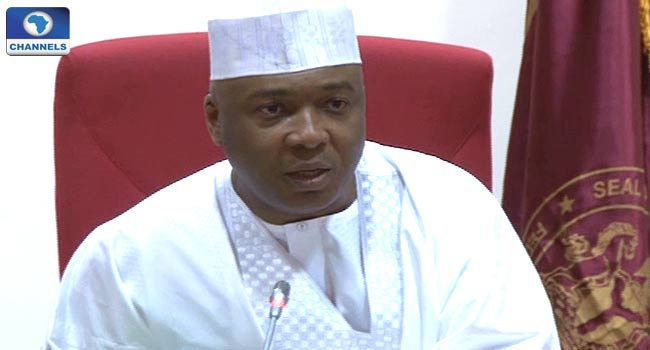
Mr Oshiomole advised the government to consider more viable options of bringing the country out of recession without necessarily mortgaging its future,
“My conclusion as a pragmatic is; don’t hurry, don’t rush into anything take your time to do your calculations and use words that are not offensive, improve on your communication and remove the discuss from jargon to ordinary language so that every Nigeria’s tax-payer, who is a stakeholder and shareholder of Nigeria incorporated, can understand what the issues are,” he advised.
Governor Oshiomhole further urged the government to tread softly, stressing that “we must not panic.
“We didn’t cause this problem, yet we have been voted to fix it and the task of fixing an economy in recession is not overnight”.
Nigeria’s economic recession was officially announced last month in a report of the National Bureau of Statistics that showed that the Gross Domestic Product in the second quarter of the year contracted by 2.06%.
According to the report, the decline has caused the Naira to get weaker while lower oil prices dragged the oil sector down.
The output shrunk by 0.36 in the first quarter.
During the quarter, nominal GDP was 2.73% higher at 23.48 million Naira at basic prices.
This growth was lower than the rate recorded in the second quarter of 2015 by 2.44% points.
‘Mere Speculation’
After that report sent jitters across the nation, the President of the Senate asked the executive to raise capital from the sale of government assets and other sources to shore up reserves.
Senator Saraki made this recommendation as the Senate resumed plenary after a seven weeks’ recess.
Addressing lawmakers, Senator Saraki said that the sale of assets would calm investors, discourage currency speculation and stabilise the economy.
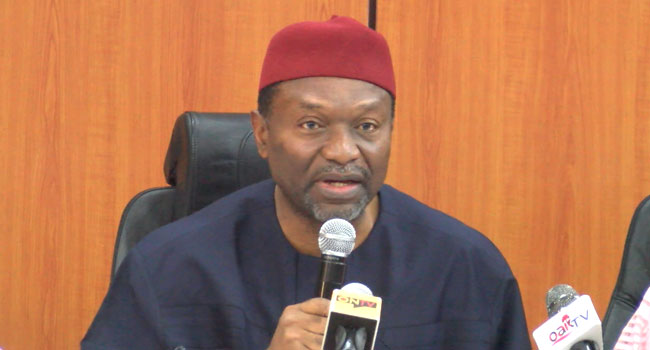
He recommended part sale of the NLNG Holdings, reduction of government share in upstream oil joint venture operations and sale of government stake in financial institutions.
However, the nation’s budget minister, Udo Udoma, said that the primary objective of government’s fiscal stimulus plan was not to sell off all major critical national assets but to source immediate funds to reflate the economy and implement capital projects in the 2016 budget.
Senator Udoma gave the explanation in Lagos while briefing reporters on the forthcoming Nigerian Economic Summit.
He said the intention of the government was just to get enough money to fund the 2016 budget and get the economy back on the path of recovery.
Government, he stated, needed to inject a large dose of funds into the system to get the economy back on track and to faithfully implement the provisions in the capital budget tailored at reflating the economy and aiding the diversification process.
The executive had also through the Minister of Information and Culture, Mr Lai Mohammed, described as mere speculation, talks of a proposed sale of national assets for the purposes of getting Nigeria out of recession, saying that the government is yet to take a decision on the matter.
He said it was only discussed and endorsed as a Medium Term Expenditure Framework and remains a suggestion but not a solution decided upon by the government to rebound the economy.

